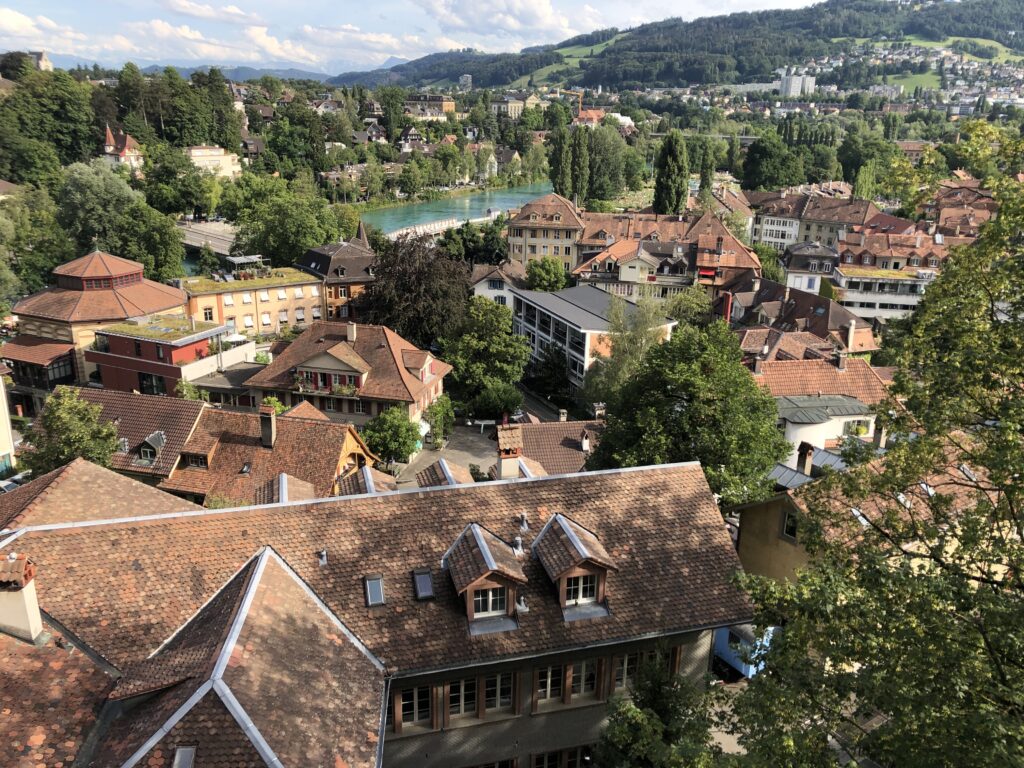
Visa paperwork has defined my life for the past 14 years.
From the age of 20 onwards, my visas extended from a student visa for a semester-long program in Pau, to a work visa to teach English in a small village in France’s Vendée region as a part of the Teaching Assistant Program in France (TAPIF), and later to working a corporate job at a small firm in Grenoble.
Sometimes the visas were for three months, more often six, and, when my application to do a Master’s program in Chambéry was accepted, I received the golden ticket: a two-year student visa to study in France.
While at times stressful to find housing on three or six-month visas, I felt a rush of adrenaline at the challenge. Acquiring a new visa felt like a game, winning when paperwork came through. Mundane activities like buying stamps at the post office or scheduling an appointment on the phone in French would make my palms sweaty and heart leap when a conversation proved successful.
While my visa knowledge in France is well rounded, I acquired my first visa to Switzerland in 2018, when I joined the 41% of foreign nationals who call the world’s peace capital, Geneva, home.
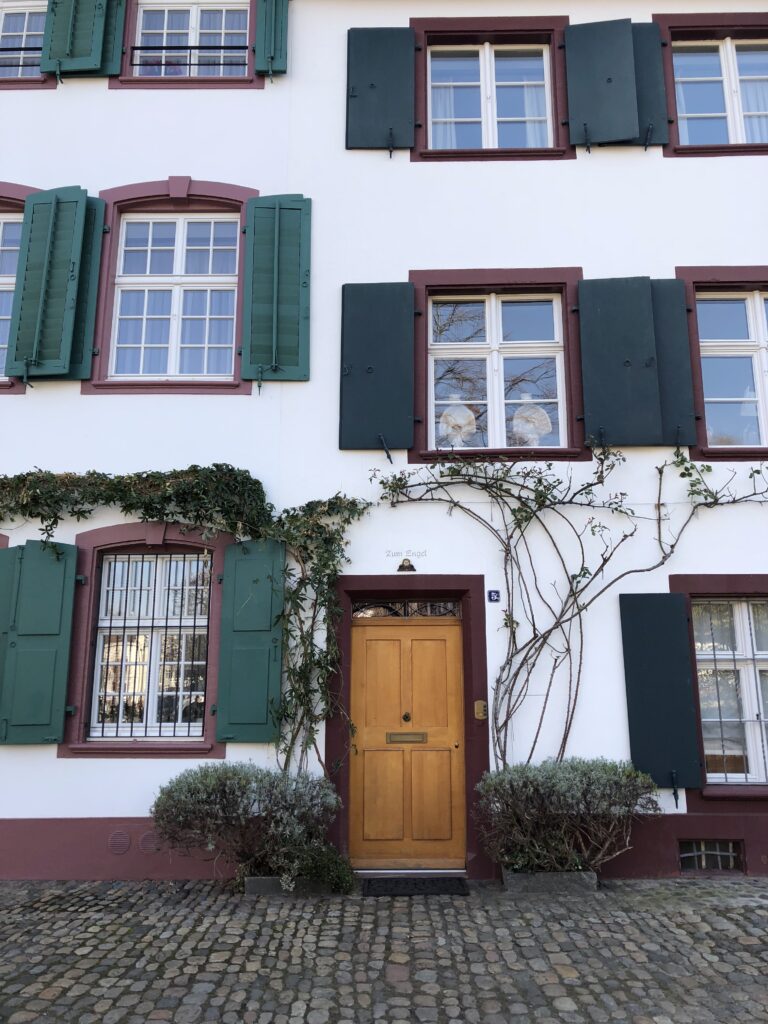

It’s often said that finding a way to move to Switzerland for non-Europeans or nationals from European Free Trade Association (EFTA) countries (Norway, Liechtenstein and Iceland) is as hard as diamond.
The Swiss heavily guard their breathtaking Alpine views and UNESCO-awarded cheese and wine production. In 2025, Switzerland granted 8,500 work permits for non-EU/EFTA nationals, half long-term B permits and the other half comprised of short-term L permits. According to the Swiss government’s website, employers must apply for a work permit for the candidate, proving that no other suitable candidate from Switzerland or other European nationals qualified.
Finding a way to live in Switzerland for non EU nationals may be daunting, but is surely not impossible.
While not an immigration lawyer, the below details are based on brainstorming and simple online research of ways to relocate to Switzerland, specifically tailored to non-EU nationals. For specific inquiries and information related to your visa requirements, please consult your respective Swiss consulate or embassy. A full list of Swiss missions around the world may be accessed here.
- International organizations
- Intra-company transfers
- Study abroad
- Artists, Athletes, or Cultural Talent
- Spiritual or volunteer residency
- Marriage or Registered Partnership
International organizations


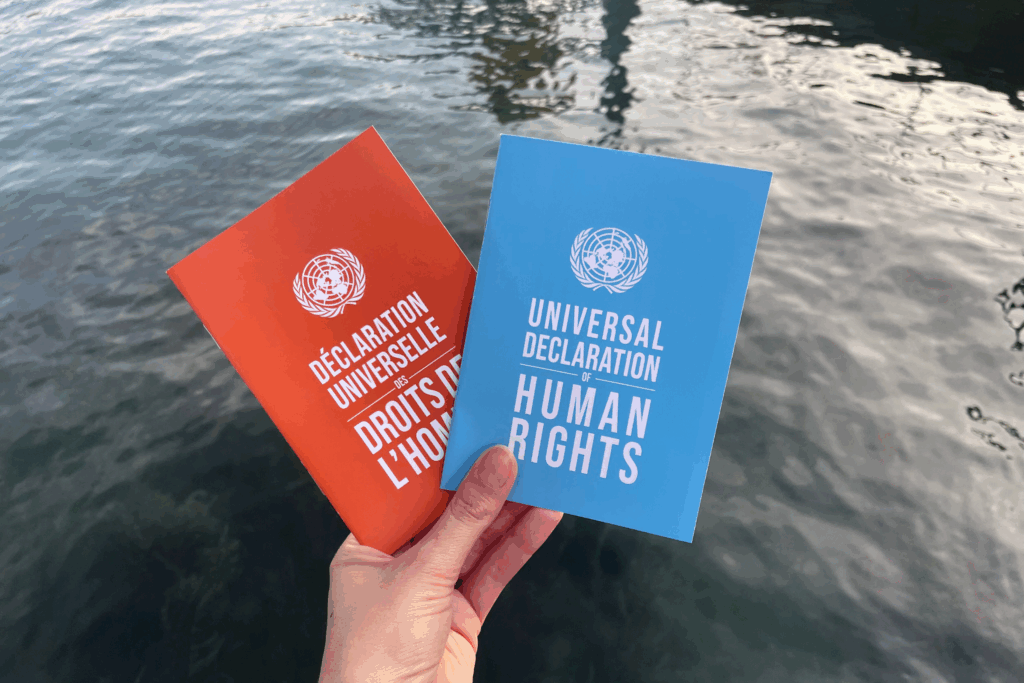
“There are two kinds of people in Geneva,” a friend once told me. “Bankers and humanitarians.”
I contribute to the 41% of Geneva’s foreign population who work in one of the city’s many international institutions, today facing increasing uncertainty following the loss of USAID funding. While work at times feels sinister, I am trying to see the positive – could this enforce a new direction for the organization, driving it to have more meaningful impact in the world?
United Nations agencies and international organizations such as the World Trade Organization, diplomatic missions or the European Organization for Nuclear Research (CERN) grant their employees with what is called a carte de legitimation (CDL), a residence permit granting working rights and certain privileges in Switzerland. A precursor to obtaining the CDL is an entry visa, after which a CDL will be issued upon proof of certain documents (employment contract, address in Switzerland, passport copy, etc.). The employer will typically liaise with the Swiss government or guide new hires on how to finalize paperwork. Guidelines on the carte de legitimation may be viewed here.
CDLs are renewed in line with the employee’s contract. While they confirm the right to work, they do not guarantee residency, since CDL holders do not actively contribute to the Swiss tax system. For non-EU citizens, job loss means the right to stay in Switzerland is not automatically granted. In contrast, EU citizens can often apply for a B permit, which allows them to live and work in Switzerland. Non-EU nationals without a CDL may need to get a little more creative to remain in the country.
Interested in working for an international organization? A full list of UN funds, programs and specialized agencies may be viewed here.
Intra-company transfers
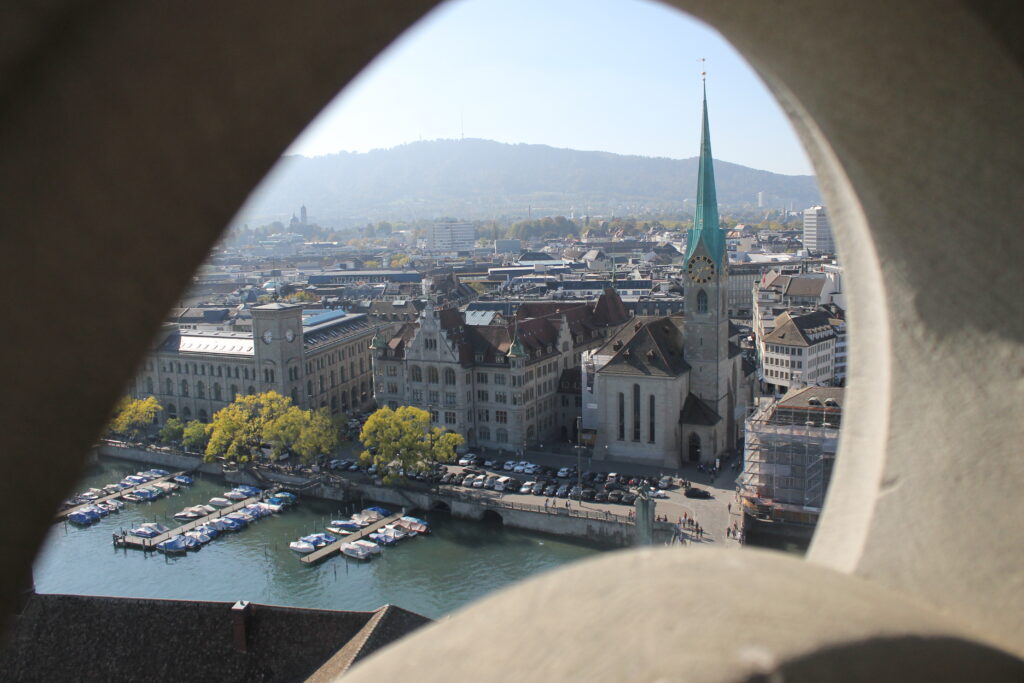
If you have been employed for at least one year with a multinational company that has a subsidiary or affiliate branch in Switzerland, you may be eligible to relocate with your company. Intra-company transfers offer special provisions for relocating non-EU nationals who possess specialized expertise or hold senior managerial positions.
While subject to quotas and lengthier processing times for paperwork for non-EU nationals, intra-company transfers may be easier via multinational corporations which already have a strong presence in Switzerland and previous experience in navigating through Swiss regulations.
Examples of multinational companies in Switzerland that hire talent from around the word include:
Banking & Finance:
- UBS (Zurich) – Swiss global bank with offices worldwide.
- J.P. Morgan, Goldman Sachs, Citibank – All have Swiss operations, mostly in Geneva and Zurich.
Pharmaceuticals & Life Sciences
- Novartis (Basel) – Global HQ; large internal mobility and ICT infrastructure.
- Roche (Basel) – HQ; transfers common across its international R&D network.
- MSD / Merck (Luzern area) – Regional offices serve as European hubs.
- Johnson & Johnson (Zug) – Uses Zug as a base for EMEA operations.
Technology:
- Google (Zurich) – One of the company’s largest engineering hubs outside the U.S.
- IBM (Zurich and Geneva) – Regular transfers for R&D, client services, and consulting.
- Microsoft, Cisco, Oracle – All have regional offices that host ICT employees.
Consumer goods:
- Nestlé (Vevey) – Global HQ; major destination for ICTs from global offices.
- Procter & Gamble (Geneva) – Regional HQ with international teams.
- Philip Morris International (Lausanne) – Global HQ with many foreign staff.
- Richemont (Geneva) – Luxury group (e.g., Cartier, Montblanc), often uses ICTs.
Study abroad

Sometimes moving abroad means starting over, which can feel like being born again – a new place, a place where no one knows your name and where a new career can be just around the corner. Education is a privilege that presents with it more opportunities to grow professionally, or to simply become a more open-minded citizen of the world. I highly admire those who pursue education later in life and fully believe that continuous learning is the secret formula that keeps us young.
If time and finances allow for you study abroad (Switzerland also allows non-EU students to work up to 15 hours per week), a long-term student permit allows for an extended stay within a country, transitioning from tourist to local. Many Master’s programs include a mandatory internship, which may open doors to future job opportunities.
Application requirements vary by university, with deadlines typically falling in April for the fall term, or in November for spring admission. Some of the most well-known institutions in Switzerland include:
- University of Geneva
- The Geneva Graduate Institute
- University of Lausanne
- EHL Hospitality Business School in Lausanne
- Swiss Federal Technology Institute of Lausanne (EPFL) in Lausanne
- University of Zurich
Three months ahead of your program start date, you will need to apply for a long-term student visa with your nearest Swiss consulate or embassy located in your home country. The university acceptance letter will become a key component of your student visa application. As a non-EU native, a long-stay student visa is required for entry into Switzerland.
Within 14 days of arrival into Switzerland, new students are required to register with their local resident’s office (commune/ commune de residence), where you will submit your application for the B-permit. The cantonal office will submit your application to the State Secretariat for Migration, which will reviews the application and makes the decision typically within three weeks. Once approved, the B-permit is valid during one academic year, renewable annually so long as you meet the conditions (continuous academic enrollment, proof of funds, health insurance, etc.).
Artists, Athletes, or Cultural Talent


Each year large tents are built on a dusty, red esplanade in Geneva’s Plainpalais neighborhood, hosting traveling circuses. I’ve often wondered how trapeze artists and acrobats from around the world settle in Switzerland for long stretches of time.
Highly qualified creatives and professional athletes may be eligible for long-term B permits to work in Switzerland, entering the country on a “D” visa before a B-permit is issued. To qualify, you must have sponsorship from a Swiss-based institution or employer, with evidence of your artistic or athletic accomplishments.
Examples of Swiss organizations that have supported non-EU/EFTA nationals in their cultural pursuits in Switzerland include:
- Pro Helvetia (Swiss Arts Council): A public foundation under the Swiss Confederation, backing visual art, music, dance, literature, design, and performing arts.
- Swiss Films Foundation: A non-profit organization that supports film creatives, giving Swiss filmmaking global visibility.
- Gottfried Keller Foundation : A federal arts fund preserving Swiss cultural heritage; supports artists via acquisitions and networks with museums across Switzerland
- Here ! Am : Supports migrant and refugee artists through projects, residencies, and production opportunities in Switzerland
- Swissnex: An initiative of the Swiss State Secretariat for Education, Research and Innovation that supports art–innovation projects, residencies, and exhibitions internationally. Swissnex has a hub in major cities around the world (click here to see the Swissnex nearest you).
For non-EU/EFTA artists participating in events throughout Switzerland lasting under 8 days (for example, the Montreux Jazz Festival), short-term Schengen “C” visas are issued.
Spiritual or volunteer residency

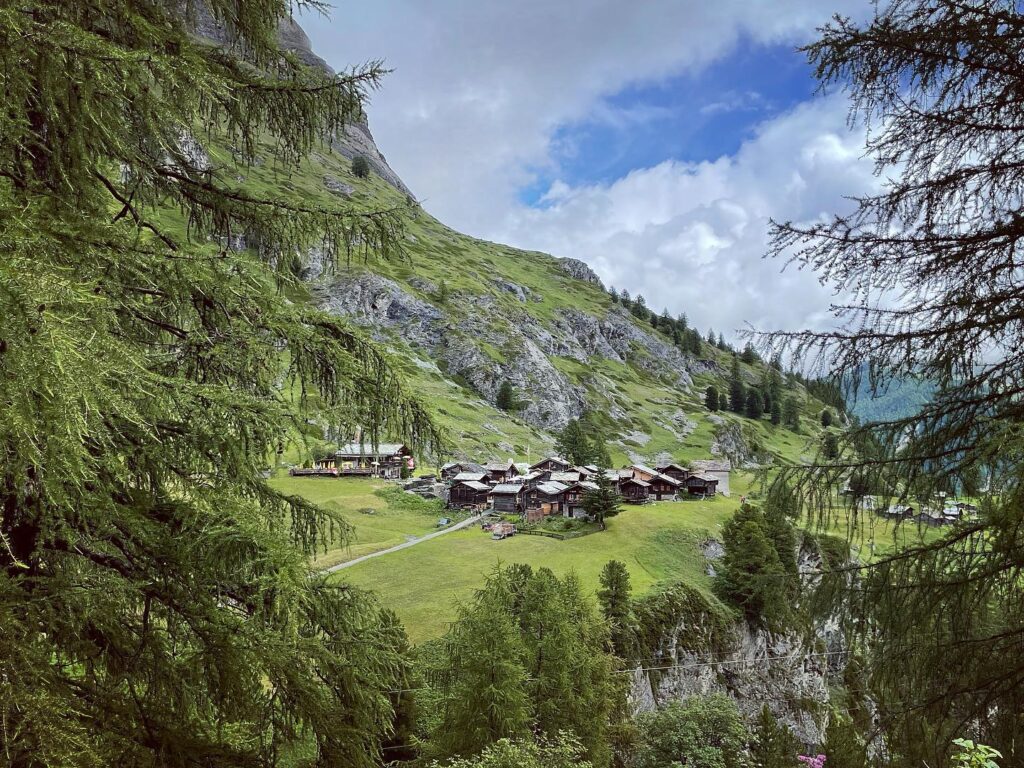

As with paid employment, Switzerland requires those volunteering or residing in the country for a religious capacity to abide by immigration regulations.
For non-EU/EFTA nationals, stays longer than 90 days will require a D visa followed by an L-permit upon entry into Switzerland. The sponsoring organization, whether a church or an NGO, will process the application. As with paid employment, sponsors must justify their choosing of a non-Swiss or EU-based candidate.
If you are interested in supporting organizations that aid asylum seekers and refugees, such as through social integration programs, a place to start could be by researching some of the larger organizations that fall under the umbrella of the Swiss Refugee Council (OSAR). As of 2025, these organizations include:
- Amnesty International
- Caritas Switzerland
- HEKS / EPER (Hilfswerk der Evangelisch‑reformierten Kirche Schweiz / Entraide Protestante Suisse)
- Schweizerisches Arbeiterhilfswerk (SAH) – now also known as Solidar Suisse
- Verband Schweizerischer Jüdischer Fürsorgen (VSJF)
- Heilsarmee Flüchtlingshilfe (Salvation Army)
- Liechtensteinisches Rotes Kreuz
- Internationaler Sozialdienst Schweiz (ISS)
- Zürcher Beratungsstelle für Asylsuchende (Zurich counseling centre for asylum seekers) FIZ Fachstelle Frauenhandel und Frauenmigration
- Save the Children Switzerland
Marriage or Registered Partnership


I wouldn’t recommend looking for a man in finance, trust fund, 6’5, blue eyes, just for residency’s sake.
I am indeed married to a very tall, Swiss man. However, for the time being, my permit remains tied to my employment within an international organization.
If the love of your life happens to be Swiss, a series of steps must be taken for non-EU/EFTA nationals to issue a B-permit, allowing you to legally work in Switzerland. Documentation may include a marriage certificate and proof of financial stability, such as bank statements and paperwork related to accommodation.
For the canton of Geneva, application for a C-permit may be issued after five years (permanent residency).
For more details about naturalization, please visit the Swiss government’s dedicated page here.

Leave a Reply